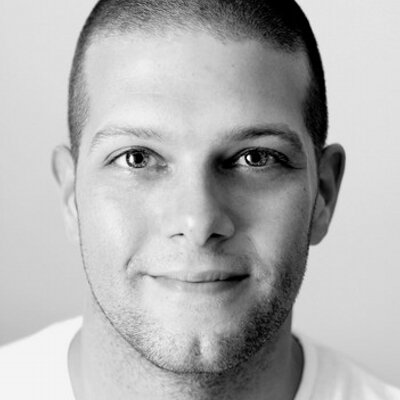Does the Image Matter Anymore? Big Data, Photography and the Emergence of Network Economy Camera Development
Previous understandings of photography have described the interrelation between decade long processes of camera technology innovation and the resulting aesthetic development in image forms that follow. Today cell phone manufacturers offer software updates to cameras that extend consumer image making abilities. With these updates, software partially replaces hardware development as users find that their camera phones can do one week what they could not the previous (Apple and Samsung’s narrow depth of field and low light photography updates being examples of this). Importantly, however, this is not a one-way process in which manufacturers “push” updates to consumers. Rather, manufacturers can now also “read” the data being created on their devices, either directly as it is captured, or indirectly as it is uploaded to social networks. Likewise, major DSLR manufacturers (Canon, Nikon, Sony and others), whose consumer base upload millions of images to Flickr every week (complete with detailed and complex EXIF data) now have a trove of information regarding the geographic location, lens settings and camera settings, not to mention contextual and consumption popularity data, that can inform their production and R&D decisions. The data economy of photography now extends beyond the relationship between photographer, camera and resulting image, and into the relationship between photographer, socially networked image exhibition platform, image consumer and camera manufacturer. Taking an analysis of over 5000 photographs derived from the 100 million CC Flickr archive, this talk considers the emergence of Astrophotography as a genre and the R&D responses to it from the camera manufacturers to ask: when it comes to camera innovation, does the image matter anymore?
 Bio: Dr. Leon Gurevitch is Visiting Professor in the Film and Media Department at the University of California, Santa Barbara and until recently, Senior Research Fellow on the Cultural Analytics Program in the Institute for Pure and Applied Mathematics at the University of California Los Angeles. Back in New Zealand Leon is Senior Lecturer at Victoria University of Wellington’s School of Design and a Royal Society of New Zealand Research Scholar. Leon is an Associate Editor of Animation: A Disciplinary Journal has published his work in Continuum Journal, The Journal of the Royal Society of New Zealand, The Journal of Television and New Media, Senses of Cinema, and others. Leon currently lectures graduate and postgraduate courses in photographics and computational culture.
Bio: Dr. Leon Gurevitch is Visiting Professor in the Film and Media Department at the University of California, Santa Barbara and until recently, Senior Research Fellow on the Cultural Analytics Program in the Institute for Pure and Applied Mathematics at the University of California Los Angeles. Back in New Zealand Leon is Senior Lecturer at Victoria University of Wellington’s School of Design and a Royal Society of New Zealand Research Scholar. Leon is an Associate Editor of Animation: A Disciplinary Journal has published his work in Continuum Journal, The Journal of the Royal Society of New Zealand, The Journal of Television and New Media, Senses of Cinema, and others. Leon currently lectures graduate and postgraduate courses in photographics and computational culture.
****
Following the lecture, please join us for drinks at St Lucy's.
About Research Seminar and Workshop Series
School of Communication and Arts Research Seminar Series
The research seminar and workshop series occur each semester, each with a different topic and guest speaker from UQ or otherwise.
Friday, 28 February Hybrid: Online via Zoom and in person at the | Generative Hate | |
Friday, 21 March Hybrid: Online via Zoom and in person at the | Close Encounters of the Hermeneutic Kind: UFOs as More-than-Human Media | |
Friday, 11 April Hybrid: Online via Zoom and in person at the | Indigenous and Local Knowledge Systems and Community Radio in India | A/Prof Elske van de Fliert |
Friday, 23 May Hybrid: Online via Zoom and in person at the | The Drama Of Anthropological History | |
Friday, 6 June Hybrid: Online via Zoom and in person at the | Video, Bias, Action. Mitigating Cognitive Biases through Role-Play Video Scenarios | |
Thursday, 31 July Hybrid: Online via Zoom and in person at the | Crossing Disciplinary Boundaries: Experiments in Public Engagement | Prof Sally Shuttleworth (Oxford University) |
Friday, 8 August Hybrid: Online via Zoom and in person at the | Designing engagement for coral reef rescue | A/Prof Elske van de Fliert and Dr Skye Doherty |
Friday, 22 August Hybrid: Online via Zoom and in person at the | Pigeon Fool’s Turing test: The relationship between embodied AI bots and networked and absent humans | Dr Abbie Trott |
Friday, 19 September Hybrid: Online via Zoom and in person at the | War in Our Hyperconnected World: Exposing the Invisible Battlespace | Dr Kathryn Brimblecombe-Fox |
Friday, 17 October Hybrid: Online via Zoom and in person at the | A/Prof Alberto N. García (Universidad de Navarra) | |
Friday, 24 October Hybrid: Online via Zoom and in person at the | Forking paths, simultaneous timelines and river monsters: an origin-story artist talk from early hypertext to XR storytelling machines | Prof Caitlin Fisher (York University, Canada) |
